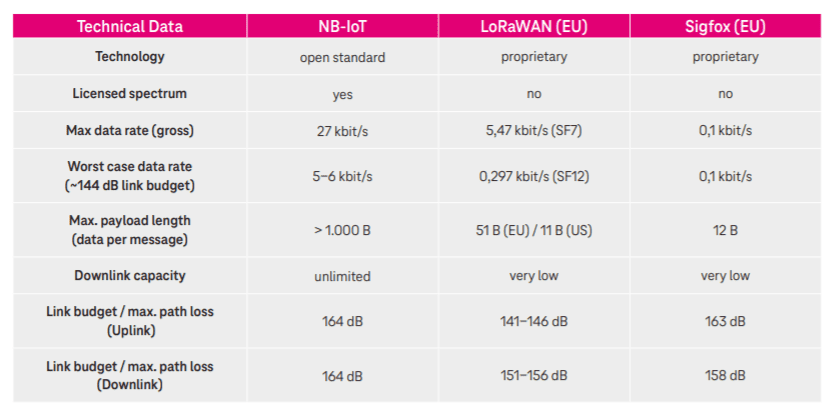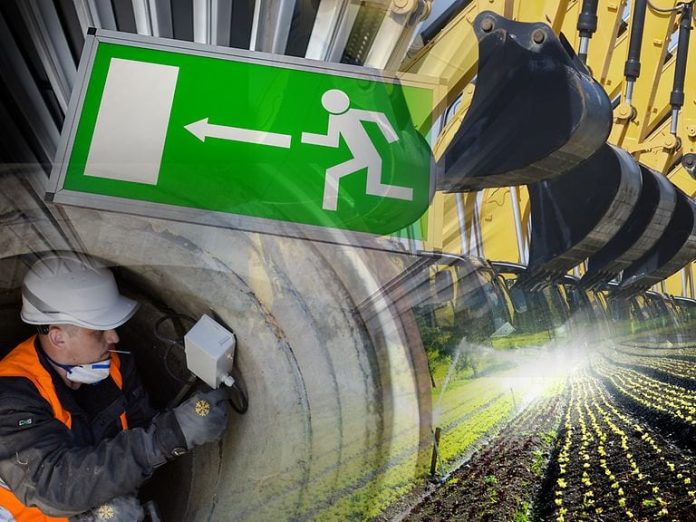Deutsche Telekom has said it is now offering NB-IoT connectivity in 20 countries and LTE-M in 10 countries. The company has outlined new cellular IoT contracts for water irrigation with Spanish manufacturer Hidroconta, in-building lighting with German lighting specialist Fischer Akkumulatorentechnik, storm damage monitoring with Spanish IoT firm Sensoneo, and a new construction equipment rental platform with German software firm Sharemac.
Deutsche Telekom said it has struck roaming deals on European NB-IoT networks variously with Orange, Swisscom, Telecom Italia, Telenet, Telia, and Vodafone. Deutsche Telekom customers can also roam onto T-Mobile’s NB-IoT network in the US. It is offering LTE-M roaming outside of Europe with AT&T in the US and NTT DoCoMo in Japan. The company put its NB-IoT network live in Germany in 2019; its LTE-M network was switched on in 2020.
The firm said use cases NB-IoT and LTE-M are multiplying. Its cellular IoT networks are engaged in applications in agriculture, industry, public safety or building management, it said. The company stated it will expand its roaming partnerships through 2021, with a major focus on international roaming beyond Europe, particularly with NB-IoT. “[Our] machine and sensor network is picking up momentum; demand is increasing, also internationally,” it said.
Dennis Nikles, chief commercial officer for IoT at Deutsche Telekom, commented: “With the new network technologies, IoT is growing even faster. Almost unlimited possible uses offer advantages for industry and everyday life. Availability around the world is essential, also for stable supply chains. To this end, we are quickly entering into further roaming partnerships, including beyond Europe.”
Deutsche Telekom has recently entered a partnership with The Things Industries (TTI) on a hybrid IoT gateway solution combining LTE-M and LoRaWAN / LoRa. The pair are offering pre-configured gateways that communicate with LoRaWAN devices and platforms via LTE-M. The gateways optionally support LoRa 2.4GHz for global use. The company has offered a comparison chart for narrowband-like IoT technologies, including Sigfox (see bottom).
The four deals the carrier offered as evidence for the “momentum” and “demand” for NB-IoT are based on NB-IoT, and focused on two European markets: Germany and Spain. Hidroconta is offering smart water irrigation on NB-IoT in Spain. It highlighted two deals with the firm: to monitor the supply of drinking water to 6.5 million inhabitants in Madrid, and to control ground water to the “largest organic growing area of vegetables in Europe”, in Murcia.
Also in Spain, Sensoneo is offering NB-IoT sensors to monitor water run-off and guard against storm damage in public infrastructure. Its Octopus overflow warning system measures measures water level in drainage shafts, and reports over NB-IoT. Sensoneo has a well-established international footprint beyond Spain, as well.
In Germany, Fischer Akkumulatorentechnik is offering NB-IoT based building security in schools, offices, and retail using battery-powered lights. These require close control, and NB-IoT feeds status data about the luminaires to a central dashboard. Sharemac is offering an NB-IoT-based rental system for construction equipment, which allows construction companies to remotely monitor connected equipment, and offer short-term rentals on idle machinery.


